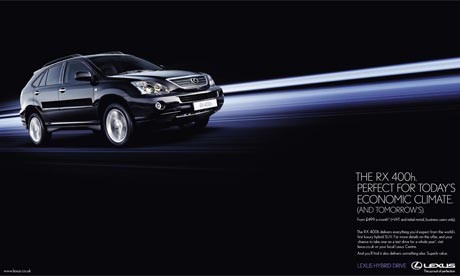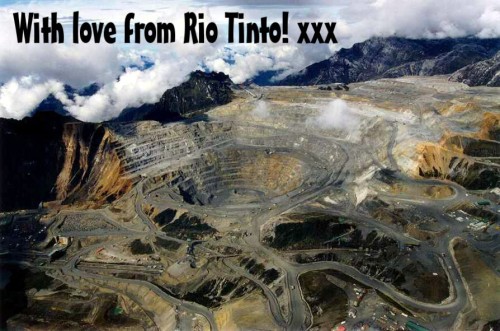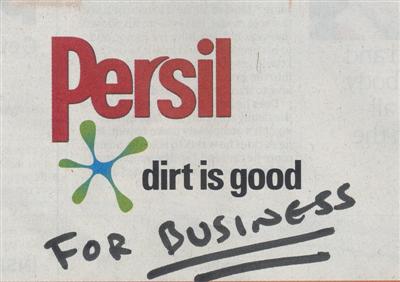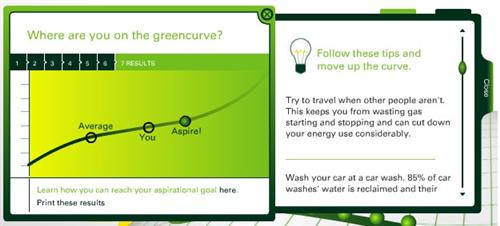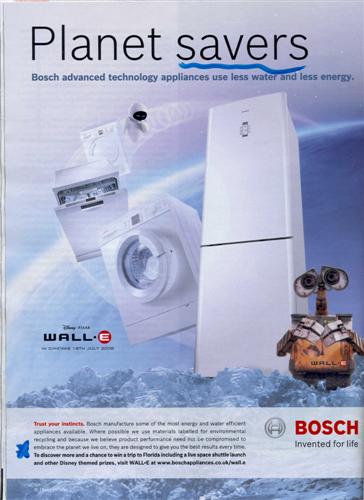
Corporations, basically, run the world: what they do influences billions of people, not just in terms of the environmental impact of their activities, but in making people think that the corporate way is the best way. It’s not quite that simple — corporations are an intrinsic part of the greater cultural behemoth that is known as Industrial Civilization; they are the engines that consume the resources and the humans that are too easily taken in by their lies — and the people who say “yes” to the corporations become part of that machine, and as responsible for the ills of the Earth as anyone else.
But, corporations are still the engines, and when they say, “Do it!” then it happens. When they say they are going to set greenhouse gas targets, then they will get what they want, on their own terms, because you trust them.
A coalition of 99 companies is asking political leaders to set targets for cutting greenhouse gas emissions and to establish a global carbon market.
Their blueprint for tackling climate change is being handed to Japanese Prime Minister Yasuo Fukuda ahead of next month’s G8 summit in Japan.
Companies involved include Alcoa, British Airways (BA), Deutsche Bank, EDF, Petrobras, Shell and Vattenfall.
They argue that cutting emissions must be made to carry economic advantages.
The business leaders hope their ideas will feed through the G8 into the series of UN climate meetings that are aiming to produce a successor to the Kyoto Protocol when its current targets expire in 2012.
(from http://news.bbc.co.uk/1/hi/sci/tech/7464517.stm)
Have you seen the list of companies, and their demands? Why not read it for yourself.
This is the crux of the policy:
The framework should respect the prerogative of national governments to employ the domestic policies best suited to their own national circumstances. It should encourage all clean technology options to be considered. It should be pragmatic and focus on the most cost-effective emissions abatement possibilities in the short run, particularly in energy efficiency and forest conservation. It should stimulate the international market for products and services that can help the economy adapt to those impacts of climate change that now cannot be avoided. It should be designed as a fair and flexible, international policy framework that can evolve and grow in the long run, stimulating ever wider and more meaningful participation by countries and industries.
It doesn’t take a genius to see the way that the real imperative to remove the sources of anthropogenic global warming and let the Earth return to a state by which it can heal itself has been thrown out in place of lily-livered demands to stimulate product demand and carry on business as usual in every way possible. Screw dealing with the cause of the problem; let’s make a whole new economy out of it!
The devil is in the detail, and the detail is very interesting…
– All major economies, including developing ones such as China and India, should be included in the post-Kyoto deal, with richer countries committing to deeper and earlier emissions reduction. (The nice, logical lead-in)
– Governments should aspire to halve global greenhouse gas emissions by 2050 (Less than even the IPCC are demanding, and it’s only an “aspiration”)
– Governments and businesses should urgently explore bottom-up approaches to reducing emissions (Meaning what, exactly?)
– A global carbon trading system should be established as soon as possible (This is the real target! Corporation love trading energy. This is a massive get out from action.)
– Emissions caps should be applied flexibly across industry, with some sectors allowed leeway to preserve competitiveness. (What! So what exactly is the global economy competing with? This is a massive get out as well.)
But it’s no surprise when you read the names of the corporations on the Steering Board:
Alain J. P. Belda, Chairman and Chief Executive Officer, Alcoa, USA (Metals)
Martin J. Sullivan, President and Chief Executive Officer, American International Group (AIG), USA (Finance)
Michael R. Splinter, President and Chief Executive Officer, Applied Materials, USA (Manufacturing)
Oleg V. Deripaska, Chairman, Supervisory Board, Basic Element Company, Russian Federation (Energy, Metals, Construction, Aviation)
Willie Walsh, Chief Executive Officer, British Airways Plc, United Kingdom (Aviation)
Josef Ackermann, Chief Executive Officer, Deutsche Bank AG, Germany (Finance)
James E. Rogers, Chairman, President and Chief Executive Officer, Duke Energy Corporation, USA (Energy Generation)
Pierre Gadonneix, Chairman and Chief Executive Officer, Electricité de France, France (Energy Generation)
Phirwa Jacob Maroga, Chief Executive, Eskom, South Africa (Energy Generation)
Vyatcheslav Sinyugin, Chief Executive Officer, JCS RusHydro, Russian Federation (Energy Generation)
José Sergio Gabrielli de Azevedo, President and Chief Executive Officer, Petroleo Brasileiro SA Petrobras, Brazil (Oil)
Jeroen Van der Veer, Chief Executive Officer, Royal Dutch Shell Plc, Netherlands (Oil)
Solomon D. Trujillo, Chief Executive Officer, Telstra Corporation, Australia (Telecommunications)
Peter Bakker, Chief Executive Officer, TNT NV, Netherlands (Global Distribution)
Tsunehisa Katsumata, President, Tokyo Electric Power Company (TEPCO), Japan (Energy Generation)
Lars G. Josefsson, President and Chief Executive Officer, Vattenfall AB, Sweden (Energy Generation)
All but two of these companies have a huge amount to gain from carbon trading, but most importantly, they are setting the agenda before anyone else gets a look in. As I said, the corporations always get what they want, and this will be no exception.
It’s a good thing we can see through it all, and are doing our best to bring down Industrial Civilization: aren’t we?





